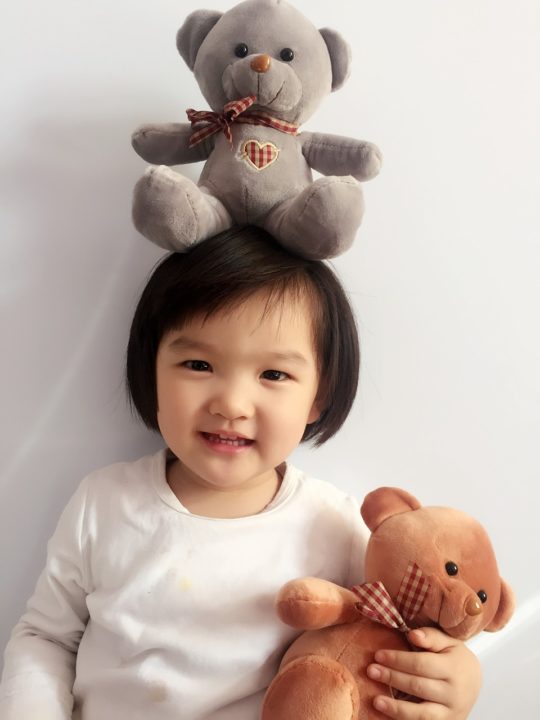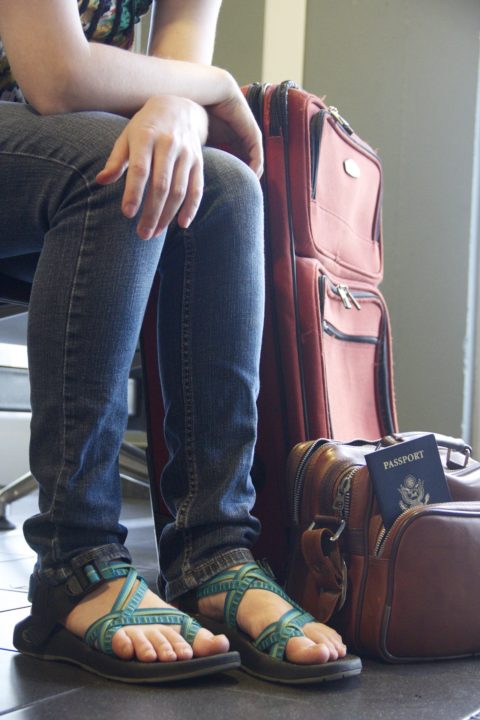
Warning: strlen() expects parameter 1 to be string, array given in /var/www/vhosts/aslyyexq.host211.checkdomain.de/wp_aupair.net/wp-includes/functions.php on line 262
(Last Updated On: )
A guide to write the letter to your Host Family
Here, we provide useful tips for writing the letter to your host family and the 5 most important do's and don't's of your letter.
The letter to your host family constitutes an important part of your au pair application. It is what host families are the most interested in, as it helps them to get a better idea of your personality.
Do's and Don't's in the Letter to the Family
We know that many au pairs agonize over the letter to the host family and don't know what they should write.
That is why we summarized the 5 most important do's and don't's for you to help you write a good introductory letter to your host family.
You want to make sure that your letter to your host family stands out from all the other au pair applications, in a good way that is of course. We recommend that you take time to write the letter to your host family and put a lot of effort into it.
At A Glance
| What questions should you answer? | What are families interested in the most? | Photos | What language should the letter be in? | What you should avoid - Don't's |
| Tell the family about yourself and describe your personality | Don't forget to tell them about your child care experience | Appropriate photos; no revealing ones! Ideal are photos that show you together with children | Write the letter in the language of the host country | Avoid focusing on only one or two cities and don't use empty phrases |
 What questions should you answer in your letter?
What questions should you answer in your letter?
- Who are you? (name, nickname, age etc.)
- What are you like/ What is your personality?
- What is your family like? (Your parents, siblings etc.)
- Tell your host family about your time at school (what school you go to, what grade you are in etc.)
- What are your hobbies and interests? What do you like to do in your leisure time?
- What do you want to do after your Au Pair stay? What are your plans for the future?
- Why do you want to become an Au Pair? What are your personal motives?
- Why did you choose that particular country as your future host country?
- Why should the family host you as their Au Pair?
What does your host family want to know?
There are a few things that the host family will specifically look for in your letter. The family is mostly interested in reading about your child care experience.
Thus, tell them about the child care experiene you were able to gather in your home  country. Explain how many children you cared for, how old they were, what you did with them and why you liked spending time with them. It's better to keep this part of your letter to the host family rather longer than shorter.
country. Explain how many children you cared for, how old they were, what you did with them and why you liked spending time with them. It's better to keep this part of your letter to the host family rather longer than shorter.
Make sure to explain why you like caring for children and spending time with them so much. Keep in mind that this is also what your host family will look for in your pictures. Thus, include pictures which show yourself together with children in your application.
Host families are usually also interested to know if you are likely to get homesick or not. Tell them in your letter if you already spent a longer period of time abroad and explain why you are not likely to get homesick. It's also a good idea to tell the host family about your previous travels abroad. Did you spend a summer vacation abroad or participate in a student exchange program? Tell your host family about it in your letter.
Photos
 Generally, you should try to keep your photos as attractive for the host family as possible, meaning that they reflect your personality and that they are appropriate.
Generally, you should try to keep your photos as attractive for the host family as possible, meaning that they reflect your personality and that they are appropriate.
Don't include any revealing photos and make sure that you are decently dressed on your photos! The host family is also not interested in your party pictures or pictures of your tatoos and piercings. Think of the photos as photos you would send a future employer, because that is what your host family ultimately is.
Include photos which show how you are playing with children. If you don't have any, leave them out. Don't stage them. Try to make your photos appear normal and effortless.
What language should the letter be written in?
It is best if you write the letter to your host family in the host country's language. Your letter doesn't have to be written in a perfect language. The host family knows that your language skills are not perfect yet and they are aware of the fact that you are not writing in your mother tongue.
It is important that you let your host family feel that you put a lot of effort and time in writing your letter.
What you should avoid - Don't's
You want to make your letter to your host family as attractive and appealing as possible. Due to this reason, we recommend that you avoid some 'Don't's' in your letter.
Avoid focusing on one or two cities only. France has more to offer than just Paris and Germany has a lot more cities that are worth visiting than only Berlin, Hamburg or Munich.
By focusing too narrowly on only major cities of your host country, you might miss the perfect host family for you only because they might not be living in your preferred city. However, getting along with your host family is worth a lot more than living in the right place.
Another thing you should avoid is to over emphazise in your letter to your host family that you have a boyfriend or girlfriend (if that holds true for you). Reading too much about your boy-/girlfriend might bring the host family to think that you are very likely to get homesick.
If you are still younger than 18 at the time of your application, avoid writing sentences like "I am 17 years old". Rather rephrase it, saying "I am soon going to turn 18". Host families rather decide for older Au Pairs as they tend to be more responsible-minded.
We also recommend that you avoid writing empty phrases. You like spending time with children? Okay, great! But why do you like spending time with them? Instead of only writing that you like to look after children, explain what you like about spending time them and describe your previous experience in child care.
This post is also available in: German


